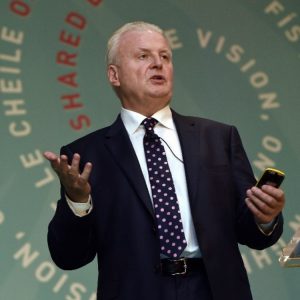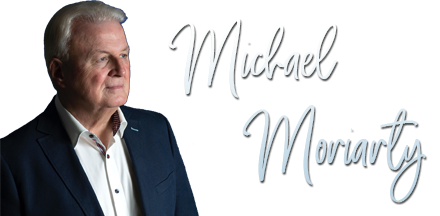The single biggest problem in communication is the illusion that it has taken place-George Bernard Shaw.
Communication is a competency; good communication is an art; honest communication is about trust and integrity.
Because we are social beings, constantly interacting with each other, our ability to communicate is taken for granted. Like any skill the quality of our communication varies from day to day and from individual to individual. While communication is a vitally important life skill few of us ever consistently try to improve and develop it and yet it is most important for our professional and private lives. Successful communication is a two-way process which helps us better understand people and situations. It helps to build relationships, overcome diversities, build trust, enhance respect and creates conditions for harmonious relationships and mutual understanding.
There are various modes of communication such as verbal, non-verbal, written or visual. There are also significant and important communication skills about which we need to be constantly aware. These include listening to both words and feelings; observing non-verbal or wordless communication (over 90% of communication is non-verbal); recognising feelings by showing empathy; controlling emotions by being both self-aware and socially aware; speaking with clarity because good communication must be clear, concise, sure to connects and is understood.
Successful communication can deepen relationships, avoid conflicts and help us better understand different perspectives and particular situations.Communication ability is one of the most demanding soft skills that employers are seeking in the workplace. In the context of leadership good communicators are the ones who bring solutions, drive change, motivate and inspire. In personal relationships, good communication ability with trust and empathy can enhance understanding and respect.
In our social relationships we often focus more on what we are saying than on ensuring we are heard and understood. Verbal communication is more than just words; it is also about mood, tone, enunciation and emotion. Communication is both verbal and non-verbal and the latter is as important as what is being said. Facial expression, posture, gestures and tone of voice are also channels of communication. Body language is just that-a means of communication which can be both powerful and effective.
As we interact with others and meet new people we should be aware that we make a good or bad first impression before we even open our mouths. Research shows that it takes less than 20 seconds for people to form an opinion of a person on the basis of their general demeanour, mannerisms and dress and it seems that 80% of those opinions do not subsequently change. This all transpires before you even speak! It takes seconds for people to decide whether or not you can be trusted or are you capable or not. These two factors will determine what level of respect, if any, you are afforded. Therefore, the first rule in any engagement is to establish trust and thereafter build respect. Competence matters little if there is no respect.
First impressions are lasting impressions and it is said that you only get one chance to make a first impression. First impressions last well beyond that initial moment when judgement is formed . Well-established first impressions can be overturned by some significant new information but to a large extent they remain deeply rooted . It is said that a picture is worth a thousand words so the key to a good first impression is to present yourself appropriately and this is the essence of good communication, whether it be verbal or non-verbal.
Research indicates that 55% of first impressions are made by what we see , and not by what is said. First impressions are usually derived from a visual sense. Upon first meeting someone you will have a very short window of opportunity to make a positive impression. Your initial smile, politeness, body language, tone of voice and how you dress are significant influencing factors.
How you present is most relevant when you attend for a job interview. Assuming that you know your subject matter, being a good listener is as important as being a good conversationalist. Being open and confident, authentic and genuine will help convey a good impression of you as a person so never try to be someone you are not. Job interviews are about making connections and showing your competence. Your communication skills are the tools by which you convey your worth and value. Presenting a can-do, positive attitude is important as is your innate ability to speak with clarity, conciseness and coherence and listen attentively so that you actually hear what is being said.
For a job interview you should know not just what the organisation is about but also what interviewers are looking for. I have always believed that hiring new employees is about more than hiring subject experts. What is being sought is a person who is safe and dependable but who has fire and vision to make a difference. Your objective should be to present as being both confident and capable but with an ambition to actually add value to the organisation and the role for which you have applied. Communicating a sense of security with ambition is a more meaningful connection than words alone.
Yet in both personal and professional relationships the way we speak is important too. Be aware that while people may hear your words they will also pick up on other factors which adds meaning to what they are hearing. Sustaining eye contact, being aware of your tone of voice, being careful with your facial expressions are important because they create impressions and add meaning to your words. Body language and non-verbal signals communicates feelings or intentions and are a truer indicator of the validity of what is being communicated. Be mindful of body language, gestures and movement because they play a vital role in communicating with people. Understanding and correctly interpreting other people’s body language can help detect unspoken issues, emotions, intentions and negative or positive reactions.

Over the course of my own professional career I have addressed many large and small gatherings of people at conferences throughout Europe and in some US cities. I began public speaking at an early age when addressing public gatherings in my mid-teens on behalf of my politician (and teacher) father. I learned at this early stage that I had about 30 seconds to engage and hold my audience. I had to look confident, speak authoritatively and at the outset say something uniquely engaging. The audience knew who I represented and if they volunteered to listen to me I needed to give them real value. Preparation was vitally important as was knowing my subject matter. Turn of phrase was equally important and I always tried to include a number of what I called ” quotable quotes” ( these are quotes that might prove attractive to journalists, should any be present).
The 20 second first-impression rule also applies to public speaking if you want to engage your audience. First impressions are heavily influenced by non-verbal cues such as appearance and physical body actions. Therefore I have followed the “3-v” rule – visual, vocal and verbal. My general appearance, stance and posture ( visual) are important from the outset in making a connection with any audience. Along with appearance, how I spoke (vocal) and the words and phrases I used (verbal) all contribute to a first impression within a matter of seconds. I know this is important as research shows that 80% of listeners will not change their initial opinion of a speaker unless there is good cause. Preparing and rehearsing a strong, impactful introduction to catch the attention of the audience therefore matters a lot. There is an old saying in the Irish language – Tús maith leath na h-oibre-which means a good start is half the work, so get working on that powerful speech introduction.
Decades later I am still learning from others on how to engage audiences. Sometimes it is painful to watch conference speakers who are so engrossed in their subject they fail to notice that they have “lost” many in their audience. Public speakers must also listen with their eyes so they can interpret body language . Watch for the obvious signals-fidgeting, looking around, doodling, checking phone messages etc. Such people have closed down their communication channels to you, so cut your losses and wind up as soon as you can. Sometimes you need to shorten your speech. Note the advice of F.D. Roosevelt – Be sincere, be brief; be seated.
Leadership too is all about good communication and connecting with followers. Competent leaders are competent speakers because they have worked on the art of good, effective communication. They can inspire audiences with their words and body language. They know the importance of clarity, conciseness, coherence and connection. They know they must show that they are trustworthy, capable and confident because trust and confidence are essential for sustaining followers. Once they are lost they are never regained.
For organisations and business entities building influential relationships is associated with good, honest communication skills. Having empathy with others, finding common ground and understanding others point of view goes a long way towards cementing relationships with people who matter. Generating influential relationships is important for personal and professional success. Such relationships can be either functional or strategic and need both parties to be authentic and trustworthy. Business and political leaders need allies who can support them and followers need leaders they can trust and respect. Communication is the sister of leadership- John Adair.
People with large social networks tend also to be good influencers who have mastered effective communication skills. Social influencers know the importance of effective messaging through various digital communications tools and platforms. They build influence because they connect intimately and directly with their audiences or customers. Because they may have a particular expertise they have secured the respect of their followers.
Communication is about connection with other people and is essential for happy, healthy relationships. Good communication builds trust and understanding while miscommunication is inherently undermining and damaging. Good communication requires empathy and a level of emotional intelligence in order to understand the other person’s viewpoint and feelings. Trust, commitment and vulnerability are three elements of strong personal relationships. Listening is an under-rated skill but is vitally important for sustaining personal relationships. We have two ears and one mouth so that we can listen twice as much as we speak – Epictetus.
Communication transcends every aspect of human life so perfecting our communication skill should be a life-long mission. We can be better and live better if we only communicate better.
The final word goes to George Bernard Shaw who once said; I often quote myself. It adds spice to my conversation.
(Feature Photo by William Moreland on Unsplash)

